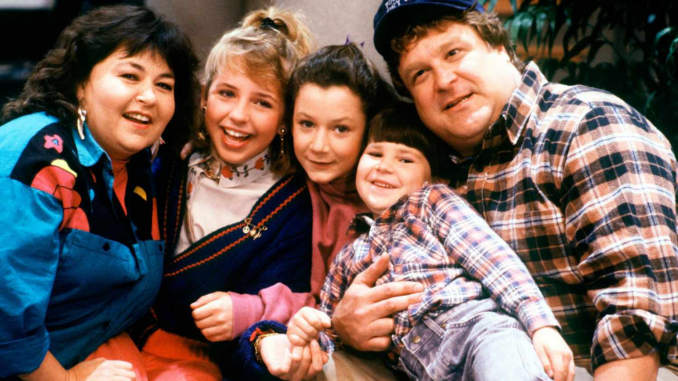
When Roseanne first hit television screens in 1988, it was more than just a sitcom – it was a cultural revolution. In a time when traditional families were often portrayed as picture-perfect, Roseanne stood out by portraying a working-class, imperfect, and relatable family that viewers could truly identify with. From its raw, unapologetic humor to its tackle of controversial societal issues, Roseanne was groundbreaking for its unapologetically real take on life.
Breaking the Mold: A Real Family on TV
At its core, Roseanne was different because it didn’t sugarcoat life. Roseanne Conner, played by Roseanne Barr, was not your typical TV mom. She was loud, brash, and often cynical. Her family wasn’t wealthy or particularly polished, but it was real. Viewers could relate to their struggles, whether it was financial hardship, marital issues, or the challenges of raising children.
While many TV shows at the time portrayed idealized nuclear families with perfect children, tidy homes, and well-off parents, Roseanne embraced the messiness of everyday life. The Conner family argued, laughed, and loved – just like the average American family. This authenticity was a breath of fresh air for audiences who were tired of seeing unrealistic depictions of family life on television.
Tackling Real Issues
One of the most daring aspects of Roseanne was its willingness to address tough societal issues that many shows at the time avoided. The series wasn’t afraid to dive into topics like divorce, abortion, same-sex relationships, workplace inequality, mental health, and even drug addiction. These were all issues that the Conners, like many real families, had to navigate.
For instance, when Roseanne’s sister Jackie (played by Laurie Metcalf) dealt with issues of self-esteem and mental health, it was one of the first portrayals of these struggles on TV in such a direct and honest way. The show wasn’t afraid to put a spotlight on topics that made mainstream TV uncomfortable, paving the way for more socially-conscious sitcoms in the years that followed.
The Influence of Roseanne on TV Today
The lasting impact of Roseanne is still felt today. The show set the tone for later television hits that embraced diversity and authenticity in family representation. Shows like The Middle, Superstore, and This Is Us owe a debt to Roseanne for breaking the mold and showcasing families from all walks of life.
In an era where TV is more inclusive and diverse than ever, it’s easy to forget that Roseanne played a significant role in challenging the status quo. It proved that audiences were ready for something different – something real – and it paved the way for more complex, nuanced, and representative storytelling in television.
